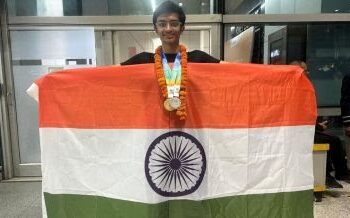In a major blow to the U.S. track and field calendar, Grand Slam Track has canceled the final meet of its inaugural season, which was scheduled for late June at Drake Stadium in Los Angeles. The decision leaves Los Angeles — host of the 2028 Summer Olympics — without a significant track meet this summer.
Double Blow for LA: Two Key Events Scrapped
The cancellation of the Grand Slam Track finale follows an earlier move by USA Track & Field (USATF) to remove the LA Grand Prix from its June schedule. With both events now off the calendar, Los Angeles, a key hub for global athletics ahead of the Olympics, is missing crucial exposure and competition opportunities this season.
USATF CEO Max Siegel told the Associated Press that holding two major track events in the city within three weeks was not financially or logistically viable, prompting their decision.
Economic Challenges Behind Grand Slam’s Decision
A source familiar with Grand Slam Track’s internal discussions revealed that the cancellation was primarily due to “economic issues with the venue.” While specifics remain undisclosed, the decision underscores the financial volatility surrounding the launch of new athletic ventures, particularly in high-cost markets like Los Angeles.
The same source also indicated that Grand Slam Track is already shifting its focus to 2026, with plans to announce new investors in the coming week — a possible sign of long-term commitment despite early setbacks.
Athletes Left in Limbo
The cancellation has immediate consequences for athletes aiming to qualify for this year’s World Championships. USATF is now working to place these athletes in alternative meets so they can meet qualifying standards or accumulate ranking points.
The disruption may also hinder training and competition rhythm for top-tier athletes, especially those based in or near Los Angeles.
A Bold Vision Interrupted
Grand Slam Track, spearheaded by Olympic legend Michael Johnson, launched earlier this year with an ambitious new format for the sport. With $30 million in funding, the league promised a fan-centric approach emphasizing competitive placements over timings, and staged condensed weekend events with contracted athletes.
Despite the financial hiccups, the league successfully held events in Kingston (Jamaica), Miami, and Philadelphia, distributing approximately $9.45 million in prize money. The canceled L.A. finale was set to add another $3 million to that total, alongside end-of-season bonuses for top performers.
Mixed Star Power and Market Gaps
While marquee athletes like Sydney McLaughlin-Levrone and Gabby Thomas signed on with Grand Slam Track, high-profile names such as Sha’Carri Richardson and Noah Lyles did not participate. Their absence may have impacted the league’s drawing power, both in terms of viewership and sponsorship appeal.
Looking Ahead: A Crucial Market in Flux
Siegel acknowledged the strategic importance of Los Angeles in USATF’s broader vision, especially with the 2028 Games on the horizon. He stated that leadership meetings are planned for later this summer to re-evaluate and coordinate future track initiatives in L.A. and across the U.S., starting with the 2026 season.
For now, however, the cancellation leaves a critical gap in the domestic track calendar — one that highlights the delicate balance between innovation, funding, and long-term viability in the evolving world of athletics.
















Discussion about this post